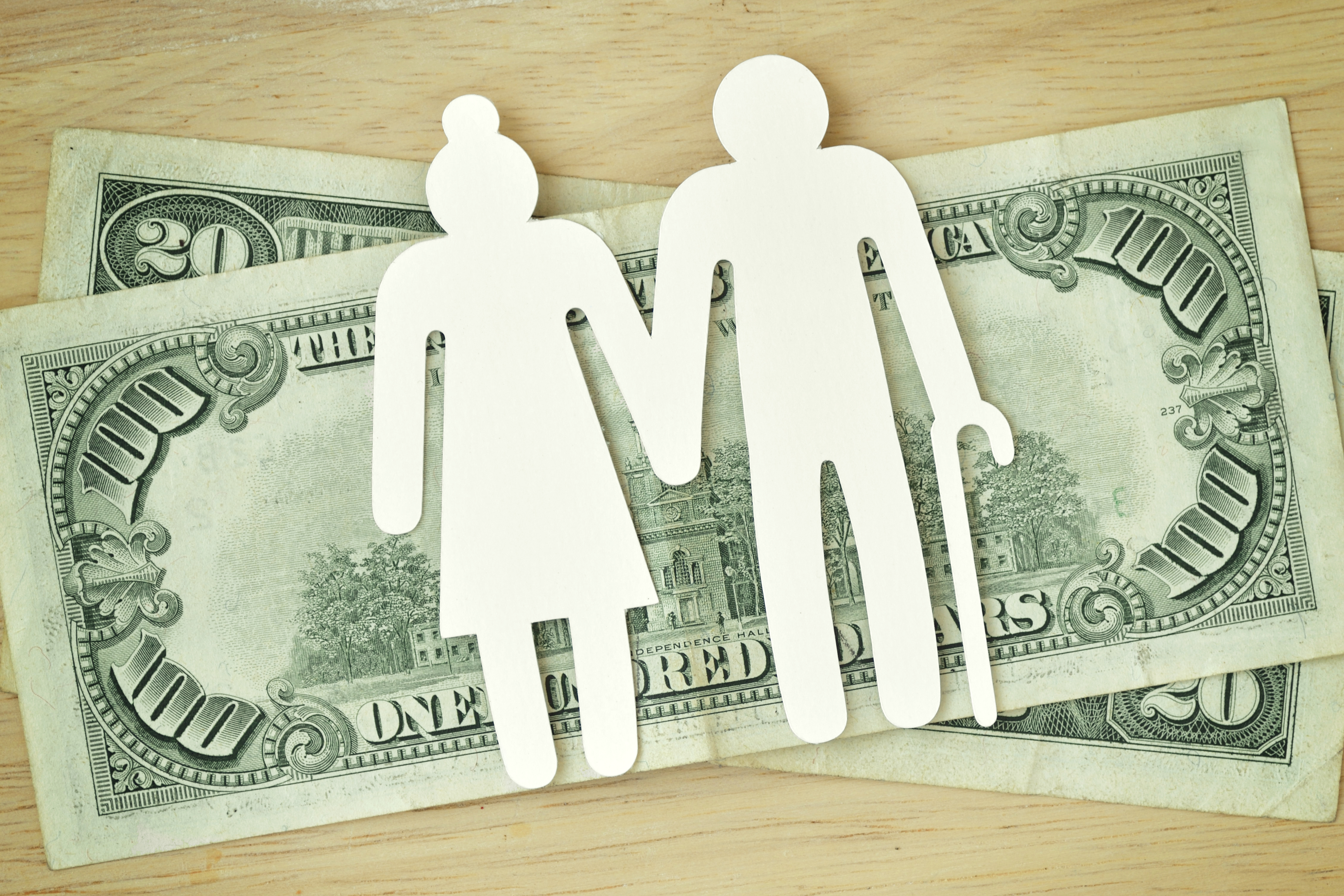How to retire at 55
All the financial planning and lifestyle factors you'll need to take into account


A free daily email with the biggest news stories of the day – and the best features from TheWeek.com
You are now subscribed
Your newsletter sign-up was successful

Retiring early may sound like a dream come true to a lot of people, but it doesn't just happen. Making retirement happen at the age of 55 requires careful planning, and it's not a risk-free endeavor. Here's what to take into consideration if you're eyeing a retirement at 55, including how much you'll need to have socked away, what hurdles you could run into, and how you can make the most out of hanging up your hat early.
What are some steps to take to plan for an early retirement?
Retiring at 55 requires some advanced planning and more intensive effort. If you're dreaming of an earlier retirement, here are some steps that you can take now to make it a reality later:
- Have a realistic plan for your life as a retiree. Perhaps the key to a successful (and lasting) early retirement is the ability to look ahead and create a plan for what's to come. One way to do this is with a financial plan, which Kiplinger says "gives you a reality check on your goals, can help prepare you for the unexpected, and ultimately get you closer to where you want to be." Don't delay planning for long-term care either, as Kiplinger says "there may be more options" if you start planning earlier in retirement.
- Remember to stress test your plans. Rarely do things go exactly according to plan, so an additional layer of planning that Kiplinger recommends is seeing how it will hold up in different scenarios. Kiplinger advises "running retirement projections at varying rates of investment return or playing with the inflation rates to stress test your situation."
- Ramp up your savings as much as possible. There are ways to get strategic to make the most of your savings. This includes maxing out workplace retirement accounts (particularly if an employer match is offered), taking advantage of a Health Savings Account (HSA) if it's available to you, and incorporating tax diversification into your retirement savings setup. And especially if you were late to saving for retirement, consider capitalizing on catch-up contributions if your budget allows.
- Make sure to consider healthcare. Once you retire, you'll no longer have access to healthcare through your job — and Medicare eligibility doesn't start until age 65. SmartAsset suggests seeing if your current employer can continue to cover you after you retire, or if you can get covered under your spouse's insurance. Healthcare isn't cheap, so SmartAsset recommends getting this piece of the puzzle figured out before you retire, to ensure you can budget appropriately.
- Think about setting up a backup income source. As MarketWatch points out, "[i]f you stop working at 55, you're halting a major source of income." To compensate, you might consider setting up other sources of income to fall back on "so that you're not sweating it out later in life," MarketWatch says. For instance, you might take on a part-time job that you're happier working, or you might look into potential sources of passive income.
How much do you need to save to retire at 55?
There's no magic number you need to hit to be ready to retire — rather, how much you'll need to retire at 55 will vary depending on your annual expenses and your intended retirement lifestyle.
The Week
Escape your echo chamber. Get the facts behind the news, plus analysis from multiple perspectives.

Sign up for The Week's Free Newsletters
From our morning news briefing to a weekly Good News Newsletter, get the best of The Week delivered directly to your inbox.
From our morning news briefing to a weekly Good News Newsletter, get the best of The Week delivered directly to your inbox.
Danetha Doe, a financial wellness educator, told Travel + Leisure that one way to come up with a baseline estimate for yourself is to "[t]ake your current salary and multiply it by 10." However, Doe acknowledged that there are some caveats to this. If you were aiming to have enough saved for 20 years or more, that formula would leave you living on "half of the salary you were accustomed to," which some might not find sufficient. "My suggestion is to use the formula to set a baseline," Doe told Travel + Leisure. "Then, do research on what it would cost to live the lifestyle you wish to experience in retirement."
Meanwhile, Kiplinger recommends retiring "with the idea that you'll live to be 100" — meaning "your income streams may need to last 20, 30, 40, or even 50 years." Further, there's the reality of inflation and any unforeseen costs that may arise, which will need to be accounted for in some way.
When you apply via our links we may earn an affiliate commission.
Are there any downsides to retiring early?
There are a number of obvious upsides to retiring at a younger age. But what about the drawbacks? For one, calling it quits at 55 could leave you a lot of years to plan ahead for when it comes to income. As MarketWatch points out, "people are living longer, which means every dollar you have for retirement needs to last until you die" and if you retire at 55, "you could potentially be in retirement for 30 years — or more." It's hard to stretch retirement income sources for that long, especially when the future can hold so many unknowns, from inflation to unanticipated costs.
A free daily email with the biggest news stories of the day – and the best features from TheWeek.com
Then there's the reality that you'll be losing your healthcare coverage. And while the Rule of 55 allows you to withdraw from your 401(k) at that age without penalty (usually, you'd face a 10% penalty, plus taxes, for withdrawals prior to age 59.5), MarketWatch says that "you probably don't want to tap into that 401(k) — or at least, you shouldn't want to do that" as early in the game as 55. Without your full-time income anymore, that leaves a lot of funds to make up for.
Additionally, there's the reality that saving seriously for an early retirement can mean "putting in a lot of effort," Travel + Leisure notes. For instance, some early retirement savings approaches call for living on a quarter or half of your income and investing every extra penny you have.
You're also taking a risk if things don't go according to plan — as Kiplinger points out, "[t]here's no guarantee you'll be able to get back into the workforce later if it doesn't work out."
How can you make the most of an early retirement?
While you might be single-mindedly focused on how great it will be to no longer work every day, that initial glow will only carry you so far. According to Kiplinger, "[e]arly retirement is better with a plan for purposeful and meaningful living regardless of your finances."
Come up with a general plan for how you'd like to spend your time, and consider making a list of a handful of non-negotiables for what you want to do in retirement, whether that's a new hobby or a lot of travel. Once you recuperate from a life spent in the workforce, you'll have renewed energy to redirect elsewhere — start thinking about where you'd like that to be sooner than later.
Becca Stanek has worked as an editor and writer in the personal finance space since 2017. She has previously served as the managing editor for investing and savings content at LendingTree, an editor at SmartAsset and a staff writer for The Week. This article is in part based on information first published on The Week's sister site, Kiplinger.com.
New Tax Rules for 2023: Download your free issue of The Kiplinger Tax Letter today. No information is required from you.
Becca Stanek has worked as an editor and writer in the personal finance space since 2017. She previously served as a deputy editor and later a managing editor overseeing investing and savings content at LendingTree and as an editor at the financial startup SmartAsset, where she focused on retirement- and financial-adviser-related content. Before that, Becca was a staff writer at The Week, primarily contributing to Speed Reads.
-
 The ‘ravenous’ demand for Cornish minerals
The ‘ravenous’ demand for Cornish mineralsUnder the Radar Growing need for critical minerals to power tech has intensified ‘appetite’ for lithium, which could be a ‘huge boon’ for local economy
-
 Why are election experts taking Trump’s midterm threats seriously?
Why are election experts taking Trump’s midterm threats seriously?IN THE SPOTLIGHT As the president muses about polling place deployments and a centralized electoral system aimed at one-party control, lawmakers are taking this administration at its word
-
 ‘Restaurateurs have become millionaires’
‘Restaurateurs have become millionaires’Instant Opinion Opinion, comment and editorials of the day
-
 How your household budget could look in 2026
How your household budget could look in 2026The Explainer The government is trying to balance the nation’s books but energy bills and the cost of food could impact your finances
-
 What is a bubble? Understanding the financial term.
What is a bubble? Understanding the financial term.the explainer An AI bubble burst could be looming
-
 The FIRE movement catches on as people want to retire early
The FIRE movement catches on as people want to retire earlyIn the spotlight Many are taking steps to leave the workforce sooner than usual
-
 Who wants to be a millionaire? The dark side of lottery wins
Who wants to be a millionaire? The dark side of lottery winsIn The Spotlight Is hitting the jackpot a dream come true or actually a nightmare?
-
 How can you find a financial adviser you trust?
How can you find a financial adviser you trust?the explainer Four ways to detect professionals who will act in your best interest
-
 What should you consider when choosing a financial adviser?
What should you consider when choosing a financial adviser?The Explainer The right person can be a big help with financial planning, investing, taxes and more
-
 What Biden's IRA means for EV tax credits: 2024 updates
What Biden's IRA means for EV tax credits: 2024 updatesThe Explainer Which cars are eligible and how much money can owners save?
-
 How to ensure you don't outlive your retirement savings
How to ensure you don't outlive your retirement savingsThe Explainer Your golden years should be enjoyed. Don't let finances get in the way.
